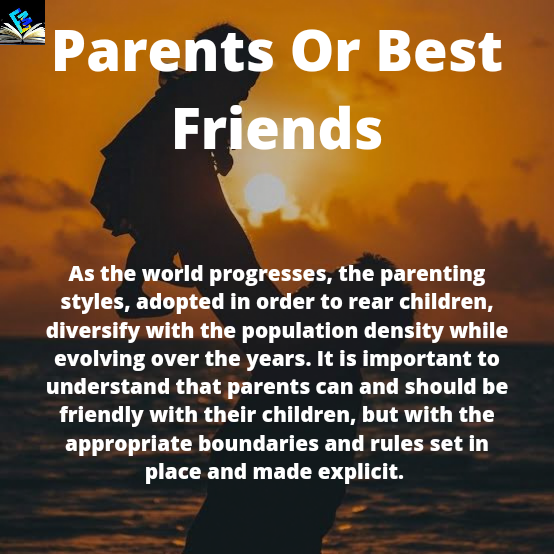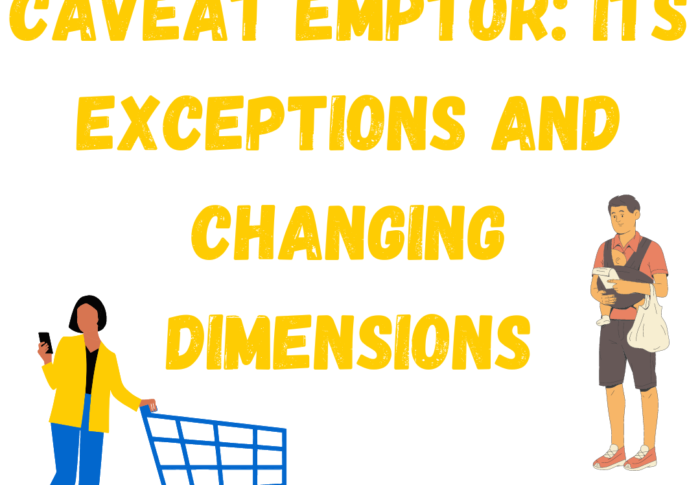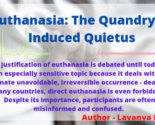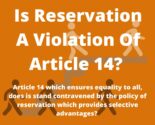
Better Parenting?
Author: Lavanya Murali
As the world progresses, the parenting styles, adopted in order to rear children, diversify with the population density while evolving over the years. The various patterns are methods changing from authoritarian to authoritative to attachment. The article seeks to analyse the best method of parenting that a parent might adopt for their child. Along with dealing with the concept of parents as best friends of the child.
Different Parenting Styles
- Authoritarian parenting is the strictest parenting style. It involves high expectations from the child, with low responsiveness. There is a higher focus on obedience, discipline and control, while nurture and appropriate socialising are not seen.
- Authoritative parenting involves high demands, but there is an equal amount of responsiveness from the parents as well. They are consistent in setting limits and boundaries and have a healthy relationship with the child.
- Attachment parenting is a parenting method that encourages a close relationship between parents and children. Which is not merely through empathy, but proximity and physical contact as well. Clearly, the parenting styles have evolved in such a way that parents are progressively getting closer to their children. They try to achieve a friendly relationship with the child.
Arising from this is the conundrum –
Can parents really be friends with their children?
Encouraging healthy boundaries and being there when your children need it is one thing but are friendship and friendly parenting the same thing?
Barbara Harvey, the executive director of Parents, Teacher and Advocates in Atlanta, which helps parents become better at parenting, said that, “Children want and need boundaries. They cannot ask questions about how far it is to go. They depend on parents to set the parameters and keep them safe.” Not providing these boundaries can cause the child to experience stress. Giving children the freedom to explore their relationships with others and their parents is important, but children require boundaries. With no guidance, they might even find it difficult to understand limits and extremities. This means they might not understand when other people draw the line, and may not be able to draw the line in their relationships with other people.
Both these outcomes can lead to distress, anxiety, self-depreciation, low self-esteem, insecurities in relationships and an inaccurate understanding of what to expect from a healthy relationship. That is to say, when a child goes to a parent for advice, or asks questions, about any kind of curiosity, the parents should attempt to educate the child appropriately to the best of their abilities. So that, the child receives the information from a trusted, experienced source rather than from somewhere on the internet.
How does being a friend makes a difference?
It is different when a child sees a parent as their best friend. The child sees their guide as a trusted confidant and a pillar of support when needed. Parents must be emotionally available and ready to provide this support when needed. The kid, thus, has a reliable person to depend on.
However, there might be repercussions. When a parent identifies their child as their best friend, they often become involved in adult situations, which they are not mentally or emotionally prepared for. When a parent views a child as their best friend, they involve the child in their life without healthy boundaries. They treat them as they would treat an adult best friend – as a confidant. This often forces the child to grow up too quickly, without being given the space to develop emotionally and psychologically as a child at that age should. They feel the need to support and guide the adult, while it should be the other way around.
Nicole Beurkens, a licensed psychologist with the Horizons Developmental Resource Center in Michigan, said that, “Parents need to be firmly in the role of guide — and be willing and able to set whatever rules and expectations are needed, including appropriate consequences, for the good of the child.” By shrouding their development in this manner, parents expecting their child to be their best friend can be alarming and concerning.
Importance Of Boundaries
Friendly relationships between parents and children can be constructive, provided the appropriate boundaries are set, and there are rules that are established. Without these, the child may rebel against any rules set later in the relationship, and may be confused about their role. They may even view their parents as hypocrites who have it out to get them. They may not be able to cope with the idea that parents cannot be treated in the same way that friends can. The power dynamics involved must provide parents with the ability to discipline their child when needed. When this is absent, the child will have too much power in the relationship. Also, they may not be able to wield it in a suitable manner to provide the maximum developmental benefits to themselves.
It must be understood that this does not mean parents should discourage democracy, individuality and independence in their child. For the child to become a competent adult and a productive member of society, they must be given the freedom to explore their identity as an individual. They must understand their role and expected contributions to society. During the process, the parent must encourage their child. They should allow the kids the space needed to achieve this identity confirmation. While being there in times of crisis to coach and guide the child through their problems. If the child is given freedom, they require a mentor to educate them when they encounter difficulties. Without guidance on how to use this freedom effectively and derive the greatest benefits from it, the child’s development may be stunted.
Adversities of Emotional Unavailability
Problems arise, If the parents are emotionally unavailable and do not provide the proper resources to help the child when needed. In such cases, childern become closed off and insecure. They may not be able to navigate through problems easily. They end up facing many difficulties in terms of handling the process of development, while navigating a crisis without an older mentor to guide them. On the other hand, if a parent constantly smothers their child and is overly involved in the child’s life, they may wish to break free and may engage in rebellious acts that could be harmful. The child may feel suffocated since they are not allowed their private space. Also, they may fail to recognise themself as an individual. The lines between their desires and their parents’ desires get blurred, and they are unable to view themself as an independent member of society.
To Sum Up
It is important to understand that parents can and should be friendly with their children. But with the appropriate boundaries and rules set in place and made explicit. Parents should be available to encourage and support the child as they develop. They must be willing to provide, or find someone who can provide appropriate guidance as a mentor when the child is in need of it. A child may view the parent as a best friend, but when a parent views a child as a best friend, the child is thrust into an unfamiliar situation which they are not prepared for. With which they might end up growing up too fast, without the space to develop as they should. Parents and children, therefore, should have an amicable, mutually understanding relationship. However, boundaries are imperative in order for both to feel secure and safe in the relationship.
For Any Queries
Mail Us At info@edumound.com
Read Similar Articles :






